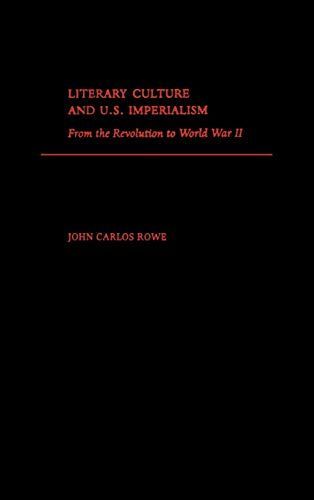
Literary Culture and U.S. Imperialism From the Revolution to World War II
John Carlos Rowe, considered one of the most eminent and progressive critics of American literature, has in recent years become instrumental in shaping the path of American studies. His latest book examines literary responses to U.S. imperialism from the late eighteenth century to the 1940s. Interpreting texts by Charles Brockden Brown, Poe, Melville, John Rollin Ridge, Twain, Henry Adams, Stephen Crane, W. E. B Du Bois, John Neihardt, Nick Black Elk, and Zora Neale Hurston, Rowe argues that U.S. literature has a long tradition of responding critically or contributing to our imperialist ventures. Following in the critical footsteps of Richard Slotkin and Edward Said, Literary Culture and U.S. Imperialism is particularly innovative in taking account of the public and cultural response to imperialism. In this sense it could not be more relevant to what is happening in the scholarship, and should be vital reading for scholars and students of American literature and culture.